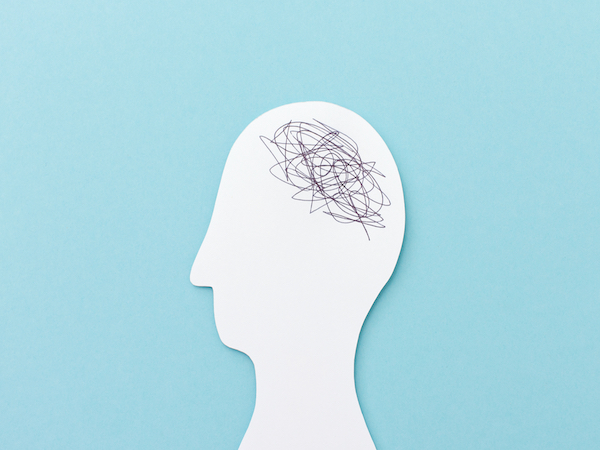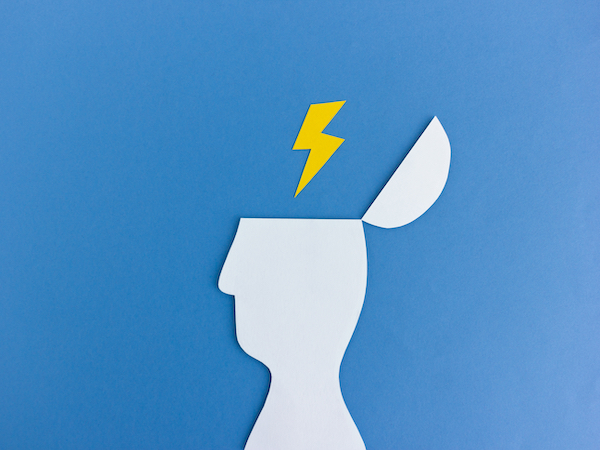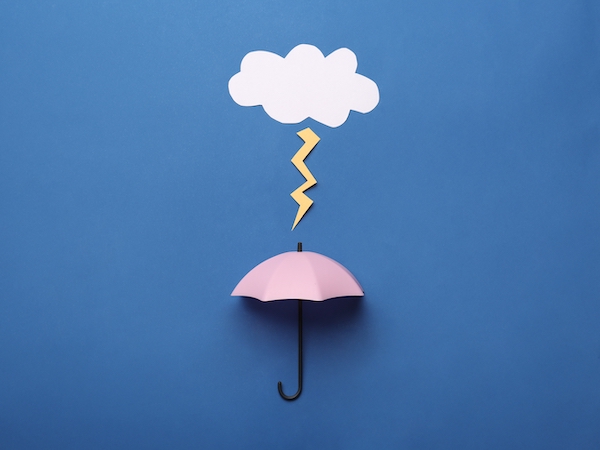If you think you may have generalized anxiety disorder, you’re not alone: generalized anxiety disorder affects between 5% and 6% of the population at some point of their life. We’ll go over how to recognize the signs of generalized anxiety disorder, potential causes and how you can treat your anxiety so that you can live a more peaceful life.
Generalized anxiety disorder demystified
Generalized anxiety disorder is one of a number of anxiety disorders, including panic disorder, social anxiety disorder, specific phobia, and others.
Generalized anxiety disorder can affect individuals in any stage of life. People with generalized anxiety disorder or related anxiety disorders may have difficulty doing even the most basic tasks, like getting out of bed, interacting socially, or working productively. Untreated anxiety can negatively impact your quality of life, and even have longterm effects on both your mental and physical health. In fact, people with untreated anxiety may experience disability, reduced ability to work, loss of productivity, and a heightened risk of suicide.
If you’re experiencing chronic feelings of fear, stress, and dread that are disproportionate to the reality of your situation, it could be a sign that you have an anxiety disorder.
The good news is generalized anxiety disorder is very manageable with treatment, so start by talking to your doctor about your symptoms so that they can help you access mental health resources and medication if needed.
What are the symptoms of generalized anxiety disorder?
Your doctor will determine whether you have generalized anxiety disorder based on how your self-reported symptoms align with the generalized anxiety disorder symptoms recorded in the DSM-5 (Diagnostic and Statistical Manual of Mental Disorders).
In order to receive a diagnosis of generalized anxiety disorder, you’ll need to have experienced the symptoms for more days than not for a period of at least six months.
The symptoms of generalized anxiety disorder include:
- Excessive anxiety and worrying about a variety of topics
- Difficulty controlling your worries
- Three or more of the following symptoms:
- Feeling restless or on edge
- Fatigue
- Difficulty concentrating
- Irritability
- Muscle tension
- Sleep problems
- Anxiety symptoms or physical symptoms are causing significant distress or impairment in your functioning
In addition to these symptoms, your doctor will also need to make sure that your symptoms are not better explained by a different mental health disorder or other medical condition. Your symptoms should also not be attributable to substance use like drugs or medication.
What causes generalized anxiety disorder?
There is no one cause of generalized anxiety disorder, but there are certain risk factors or environmental factors that can contribute to a person developing generalized anxiety disorder. Here are some of the potential causes of generalized anxiety disorder:
- a stressful or traumatic event, such as abuse, bullying, divorce, moving, or illness
- genetics or family history of anxiety disorders
- childhood development issues
- alcohol or drug use, or withdrawal from an addictive substance
- other medical or psychiatric issues
Whether or not you can identify the root cause of your generalized anxiety disorder, your doctor can help you come up with a treatment plan to manage your symptoms, improve your overall mental health, and get back to leading a productive life that isn’t overrun with excessive stress and anxiety.
How can you treat generalized anxiety disorder?
If you think you might have generalized anxiety disorder, your first step should be to speak to your doctor and get a medical diagnosis. There are no physical tests that can determine whether or not you have an anxiety disorder, but your symptoms could be caused by an undiagnosed physical illness that shares symptoms with generalized anxiety disorder. For this reason, your consultation with your doctor may include a physical exam and a verbal evaluation where you go over your medical and psychiatric history and talk about the issues you have been experiencing. Your doctor will use this information to establish whether a generalized anxiety disorder diagnosis is appropriate, or if you have a related anxiety disorder or something else going on altogether.
Once you have been diagnosed with generalized anxiety disorder, you and your doctor can discuss the different types of treatment available in order to create a customized care plan that works best for you. Here are some of the treatments your doctor may suggest in order to help you manage your generalized anxiety disorder.
Therapy
Therapy is often recommended for people with generalized anxiety disorder, so your doctor may refer you to a psychiatrist, psychologist, or some other form of talk therapy. Cognitive behavioural therapy (CBT) has been found to be particularly helpful for managing and treating generalized anxiety disorder. CBT helps patients learn to recognize their anxious thought patterns and replace them with a more realistic perspective of the situation. Your therapist may also help you learn self-soothing or grounding methods, so that you can help bring calm when your anxiety spikes.
If one-on-one therapy isn’t the right fit for you, there are also support groups for people with anxiety. This group setting can be helpful in finding a community of people who understand what you’re going through, where you can work through your anxiety in a safe space.
Medication
There are a variety of medications that your doctor can prescribe in order to help you treat your generalized anxiety disorder and manage your anxiety. No one medication will work for every person, so it’s important to understand the pros and cons of each option, and pay close attention to how you respond to medication so that you can find the solution that works best for you. Medication can be an effective treatment but most do come with side effects so be sure to discuss that with your healthcare practitioner.
In general, there are two different types of medication that are prescribed to people with generalized anxiety disorder:
Benzodiazepines
Also known as anti-anxiety medications, benzodiazepines may be prescribed as a short term solution for certain anxiety disorders. They can reduce feelings of anxiety and cause drowsiness, which is helpful for people who are having trouble sleeping.
However, benzodiazepines are generally not well suited to long-term use, since there are several side effects, including sedation and issues with memory and focus, and they can be addictive. Other potential adverse effects include dizziness, confusion, disorientation, breathing problems, and depression. In rare cases, benzodiazepines can even cause hallucinations and nightmares. Combining benzodiazepines with other medication or alcohol can also lead to exaggerated sedation.
The risk of addiction to benzodiazepines rises when they are taken regularly for a period of more than a few weeks, especially in higher doses. This form of medication can be particularly dangerous for people with existing substance abuse issues. These medications should be avoided in the elderly.
Antidepressants
While antidepressant medications also have side effects, they are generally more safe and appropriate for long-term treatment of generalized anxiety disorder. Antidepressant side effects can include nausea, vomiting, dry mouth, weight gain, headaches, decreased sexual desire, sleep problems, and more. If your doctor chooses to prescribe antidepressants, make sure to keep an eye out for these side effects. A medication is a good fit when it works well to reduce the symptoms of generalized anxiety disorder without causing excessive side effects that negatively impact your day to day life.
Antidepressant medications may take 4-6 weeks to start working. They can also cause withdrawal if you stop taking them suddenly, so always speak to your doctor if you decide you want to discontinue your use of antidepressants so that they can guide you through the adjustment.
Lifestyle adjustments
While therapy and medication can be helpful in treating generalized anxiety disorder, there are also certain lifestyle changes that you can make in order to relieve your anxiety. Try establishing a routine of exercise, good sleep habits, and a healthy diet, and avoid consuming things like caffeine, alcohol, and other drugs and stimulants. It also helps to have a support system of friends or family who you can rely on and talk through your worries with. Some people find that meditation, yoga, and other relaxation techniques can help reduce anxiety as well.
Finding out that you have an anxiety disorder can be overwhelming, but with appropriate treatment most people with generalized anxiety disorder are able to manage their anxiety symptoms, improve their quality of life, and feel better. While generalized anxiety disorder can’t necessarily be prevented, you can take a proactive approach by keeping track of increased stress levels and seeking help when needed. If your symptoms become more pronounced, reach out to your doctor or therapist to discuss adjusting your treatment plan to continue to effectively manage your anxiety.
Want to discuss your treatment options? Connect with one of Felix’s healthcare practitioners today.
If you are having suicidal thoughts, please seek help immediately by going to your nearest emergency department or by calling 911. You can also contact Crisis Services Canada’s national suicide-prevention hotline at 1-833-456-4566 if you are considering suicide or are concerned about someone who may be.




